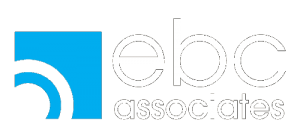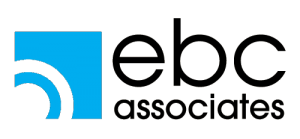The workplace of today is vastly different from what it was a generation ago, and it continues to evolve at an unprecedented pace. This rapid transformation is largely driven by technological advancements, changes in business practices, and global economic shifts. In this dynamic environment, the concepts of skills currency and employability have taken center stage.
Skills Currency Defined
Skills currency refers to the relevance and timeliness of one’s skills and knowledge in the context of the present job market. It’s all about ensuring that your skill set is up-to-date and aligned with the requirements of the contemporary workplace. Maintaining skills currency is not just a matter of personal growth; it’s essential for career progression and employability.
The half-life of skills is shrinking. In the past, one could rely on a static set of skills for an entire career. But in today’s rapidly changing world, skills become obsolete at an alarming rate. The software you mastered five years ago may be outdated today, and the industry practices you’ve always followed may no longer be relevant.
The New Workplace
The “new workplace” is characterized by several key features:
- Technological Advancements: Automation, artificial intelligence, and data analytics have disrupted traditional job roles and industries. Employees are expected to work alongside advanced technologies and sometimes even adapt to entirely new professions.
- Remote and Flexible Work: The COVID-19 pandemic accelerated the adoption of remote work, making it a permanent fixture in many organizations. Flexibility, adaptability, and remote collaboration skills are now paramount.
- Globalization: The global economy is more interconnected than ever before. Companies often operate on a global scale, and this requires an understanding of international markets, cultures, and regulations.
- Interdisciplinary Skills: Many job roles today require a blend of skills from different disciplines. For example, data scientists need both technical and domain-specific knowledge, and marketing professionals may need to understand psychology, analytics, and design.
- Soft Skills: While hard or technical skills are crucial, soft skills like communication, adaptability, emotional intelligence, and problem-solving have gained prominence. They are essential for effective collaboration and leadership in diverse and dynamic workplaces.
The Importance of Skills Currency
Skills currency is vital for both individuals and organizations. Here’s why:
- Enhanced Employability: When your skills are up to date, you’re a more attractive candidate for employers. You can readily meet the needs of the modern workplace, making it more likely to secure employment or advance in your current job.
- Increased Productivity: Current skills enable you to work more efficiently and effectively. You can adapt to new tools and technologies quickly, reducing the learning curve and increasing your productivity.
- Adaptability: As industries evolve, the ability to adapt is key. Skills currency means you can pivot to new roles or industries as needed. This adaptability is increasingly valuable as careers become less linear.
- Innovation: Current skills allow you to participate in innovation and problem-solving. You can contribute to your organization’s growth by leveraging your knowledge in creative and strategic ways.
- Future-Proofing: Staying up-to-date means you’re better positioned to navigate future disruptions and changes in the job market. This proactive approach is a form of insurance against career stagnation or job loss.
Strategies for Maintaining Skills Currency
Maintaining skills currency requires a proactive approach. Here are some strategies to consider:
- Continuous Learning: Commit to lifelong learning. Take advantage of online courses, workshops, certifications, and industry-specific training programs. Make learning a habit.
- Networking: Connect with professionals in your field. Attend conferences, seminars, and webinars to stay updated on industry trends. Networking can also provide insight into the skills in demand.
- Cross-Training: Explore related areas within your industry or develop skills in adjacent fields. This broadens your skill set and makes you more adaptable.
- Mentorship: Seek mentors who can guide you in your career. They can provide valuable insights and suggest areas for skill improvement.
- Self-Assessment: Regularly evaluate your skills and knowledge. Identify areas that need improvement and set specific goals for skill development.
- Experimentation: Don’t be afraid to take on new challenges at work or engage inside projects. Hands-on experience is one of the most effective ways to learn.
- Stay Informed: Keep up with industry news and trends through publications, blogs, podcasts, and social media. This can help you anticipate changes in your field.
The Role of Employers
Employers also play a crucial role in ensuring skills currency among their workforces. Here’s how organizations can contribute to this effort:
- Training and Development: Provide training and development opportunities to employees. Support them in gaining new skills and knowledge and encourage a culture of continuous learning.
- Mentorship Programs: Establish mentorship programs where experienced employees can guide and transfer knowledge to younger staff.
- Flexible Work Policies: Offer flexible work arrangements to accommodate employees’ ongoing education and skill development. This demonstrates a commitment to their growth.
- Clear Career Paths: Provide clear paths for career progression and skill development within the organization. Employees are more likely to stay and invest in their skills when they see opportunities for advancement.
- Recognition and Rewards: Acknowledge and reward employees who invest in their skills and contribute to the organization’s success. This can include promotions, bonuses, or other forms of recognition.
- Collaboration and Innovation: Foster a culture of collaboration and innovation, where employees can experiment with new ideas and apply their skills in creative ways.
The Future of Skills Currency and Employability
The future of skills currency and employability is likely to be even more dynamic. As technology continues to advance, the job market will see the emergence of new roles and the obsolescence of others. It will also be crucial to address the potential challenges posed by automation and artificial intelligence.
Adaptive skills will be at a premium. These include problem-solving, critical thinking, emotional intelligence, and creativity. While technology can automate many tasks, these human-centered skills can’t be replicated.
Furthermore, the importance of skills currency will extend beyond traditional employment. With the rise of the gig economy and freelancing, individuals will need to manage their skills currency even more independently. Freelancers and independent workers will need to market their current skill set to attract clients and projects.
In conclusion, skills currency and employability are indispensable in the new workplace. They are the keys to securing meaningful employment, advancing in one’s career, and thriving in a constantly evolving job market. Individuals and organizations alike must prioritize continuous learning, adaptability, and the development of both technical and soft skills to succeed in this dynamic landscape. Staying current is not just a matter of choice; it’s an imperative for the modern workforce.

